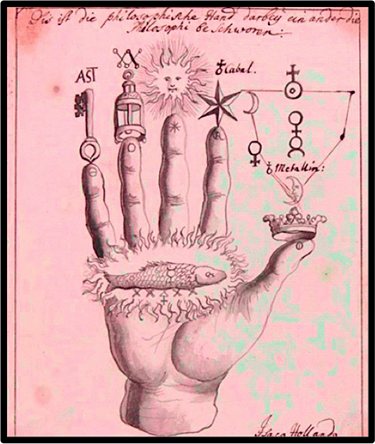 What is modernity? Where is the boundary between "science" and what has been known for millennia as "magic"? Many scholars have argued that the modern world is defined by the emergence of scientific methods for understanding, starting in Europe with the onset of the Enlightenment. This cultural movement then spread across the globe through colonialism and empire, displacing traditional forms of knowing and explaining the world that had been part of human communities for ages. Anthropologists who study the onset of the modern era, however, often view modernity not as an inevitable historical transformation, but as an apparatus of power. They suggest that modernity imposes a way of looking at the world, one that fabricates a divide between nature and culture, and presents us with a distinct way of ordering everything that surrounds us. That order prioritizes "civilization" as the peak of human ingenuity, in contrast to human communities considered primitive, savage, or wild. The MSM cluster focuses on the work of anthropologists who regard this vision of modern life with suspicion. These researchers do not see a hierarchy with technologically advanced peoples at its apex, but instead, regard modernity as range of cultural forms, as many different paths to being part of the contemporary world, all of which are essential to what we mean when we use the world "modern". How, we ask, is the modern period experienced differently across the world? Are the boundaries between modern and pre-modern practices and ideas as concrete as we take them to be? We will look to the fields of science and technology, asking how these rational practices emerge from a long history of non-scientific inquiry – traditions gifted to us by shamans, alchemists, and witches, and the archaic forms of knowing that science claims to have expelled.
What is modernity? Where is the boundary between "science" and what has been known for millennia as "magic"? Many scholars have argued that the modern world is defined by the emergence of scientific methods for understanding, starting in Europe with the onset of the Enlightenment. This cultural movement then spread across the globe through colonialism and empire, displacing traditional forms of knowing and explaining the world that had been part of human communities for ages. Anthropologists who study the onset of the modern era, however, often view modernity not as an inevitable historical transformation, but as an apparatus of power. They suggest that modernity imposes a way of looking at the world, one that fabricates a divide between nature and culture, and presents us with a distinct way of ordering everything that surrounds us. That order prioritizes "civilization" as the peak of human ingenuity, in contrast to human communities considered primitive, savage, or wild. The MSM cluster focuses on the work of anthropologists who regard this vision of modern life with suspicion. These researchers do not see a hierarchy with technologically advanced peoples at its apex, but instead, regard modernity as range of cultural forms, as many different paths to being part of the contemporary world, all of which are essential to what we mean when we use the world "modern". How, we ask, is the modern period experienced differently across the world? Are the boundaries between modern and pre-modern practices and ideas as concrete as we take them to be? We will look to the fields of science and technology, asking how these rational practices emerge from a long history of non-scientific inquiry – traditions gifted to us by shamans, alchemists, and witches, and the archaic forms of knowing that science claims to have expelled.
Faculty
Example Courses
- From Savages to Cyborgs
- Anthropology of Film
- Epistemology & Praxis
- Hegemony & Power